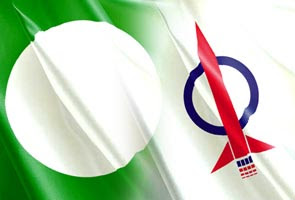The Pas and Pakatan 2.0 conundrum
Kuo Yong Kooi
The argument for and against the inclusion of PAS in the Pakatan 2.0 coalition at the end of the day is really about increasing the chances of winning future elections. Inclusiveness of different interest groups is of course the most pragmatic approach in winning elections.
Lets just start by agreeing on two main points. PAS has changed and Malaysia is in desperate need of a “moderate Islam” narrative to steer itself out of it’s doldrums.
Pas Has changed
The result of the last Pas muktamar polls tells us that the conservative factions of PAS has successfully purged the progressives from holding any party positions.
It is unfortunate that DAP made a pre-emptive strike by stating it’s intention of severing it’s ties with the President Hadi Awang before the polls. That was the starting point of a never ending crossfire between the two parties that lead to a point of the collapse of the Pakatan 1.0 coalition.
Many foresee that move by Dap was an interference of Pas’s internal politics by choosing the leader before the Pas Muktamar. If Dap were to keep quiet, the clean sweep win by the conservative faction of the party polls would have happened anyway. It was a well executed plan long before the death of their dear spiritual leader Nik Aziz Nik Mat.
Gabungan Harapan Baru (GBH) exodus from Pas is an unavoidable event. These group of politicians are not sore losers as they have dedicated the bulk of their political life to the opposition cause. If they see it fit to leave their party that they have dedicated for so long, we have to ask how then are other political parties like PKR can co-operate with them?
The current Pas Ulama leaderships have strategically placed themselves as a kingmaker role in future elections. They have laid all their cards on the table. Their Party president Hadi Awang had repeatedly stated that there is nothing wrong with talking to UMNO in achieving their Islamic agenda. It is not likely that they will capitulate to the Pakatan 2.0 common policy framework. If they do, Pakatan 1.0 would have been still alive and GHB will have still been in PAS.
The gerrymandering, the control of the mainstream media and the use of the government’s machineries by the UMNO regime has made it unlikely that the opposition can win a landslide victory in future elections. The most likely scenario is the opposition win a slight majority, it is in that predicament that PAS would most likely give confidence to UMNO/Barisan Nasional to lead Putrajaya because of their ultimate aim of implementing their Islamist agendas.
Look at the cacophonies of Hadi Awang’s overtures to UMNO at the moment. Not supporting the no confidence motion (need four witnesses to the Prime minister’s 1MDB fiasco), not attending the Bersih 4 rally but sending a few representatives, not participating but not stopping their members from attending the September 16 red shirt rally. Intending to place Pas supporters club candidates to run against Dap’s held seats.
If there were to be any Pas inclusion to the new Pakatan 2.0 coalition, the electorate needs to know what the modus operandi is? Please don’t come back to tell us that Pakatan 2.0 is operating on the consensus model. That model is well and truly dead after the Selangor Menteri Besar saga. The Kajang move, the last minute Pas candidate inclusion in the Damansara state seat in GE13 and the tabling of the Hudud private member’s bill in the parliament are a few among many examples to proof that the consensus model did not work in the previous Pakatan 1.0 coalition.
If the inclusion of Pas into Pakatan 2.0 talks is successful, there had to be some form of a binding electoral pact. (http://www.malaysia-today.
The nearest election might be a forgone conclusion but in the long run, the electorate will be able to see the follies of Pas’s politicians and their agenda. Further more the opposition needs to show leadership to set the country on the moderate Islam path.
Malaysia is in desperate need of a “moderate Islam” narrative
Malaysia had gone through a few decades of Arab Islamisation (the Marina and Dr Mahatir’s label) or Talibanisation (Zaid Ibrahim’s label). The political representation of the moderate Islam voice has to come to the fore to counter this trend. One of the core reason why Malaysia is in the current predicament is because there is a constant battle between UMNO and Pas to out-Islam each other.
In my opinion the inclusion of Pas to the Pakatan 2.0 coalition will not help to ease the terrible predicament the country is in, it will stifle the moderate Islam voice in the nation’s political arena.
Can the self appointed PKR peace maker politicians explain how they can positively help change this direction or trend with the inclusion of Pas in the coalition?


